#insecure attachment
Text
When love is unreliable and you are a child, you assume that it is the nature of love – its quality – to be unreliable. Children do not find fault with their parents until later. In the beginning the love you get is the love that sets.
Jeanette Winterson, Why Be Happy When You Could Be Normal?
#Jeanette Winterson#love#attachment style#insecure attachment#anxious attachment#avoidant attachment#attachment theory#trust#trust issues#relationship#breakup#heartbreak#recovery#healing#self awareness#personal development#personal growth#quotes
1K notes
·
View notes
Text
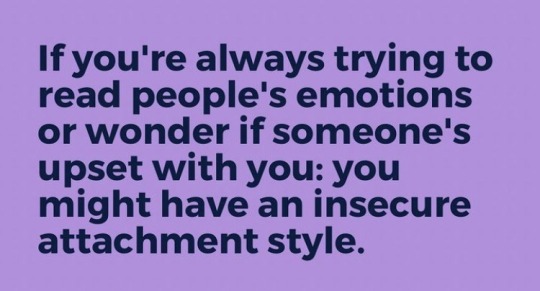


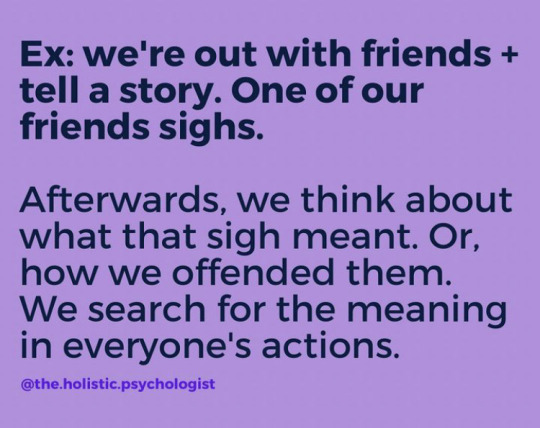

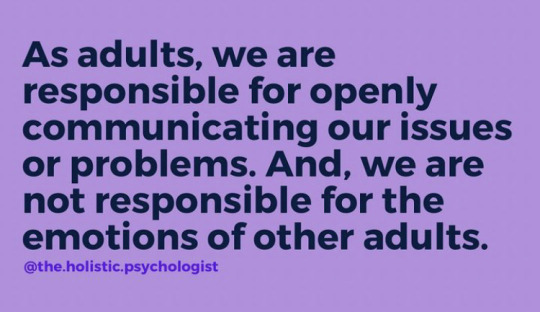
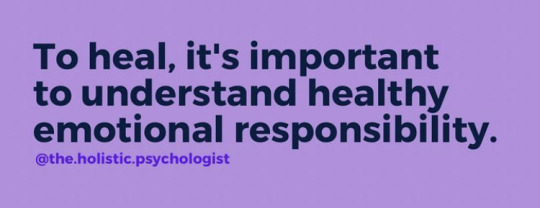
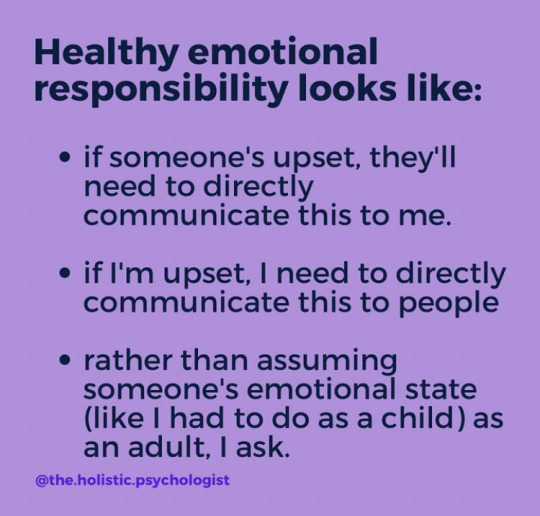
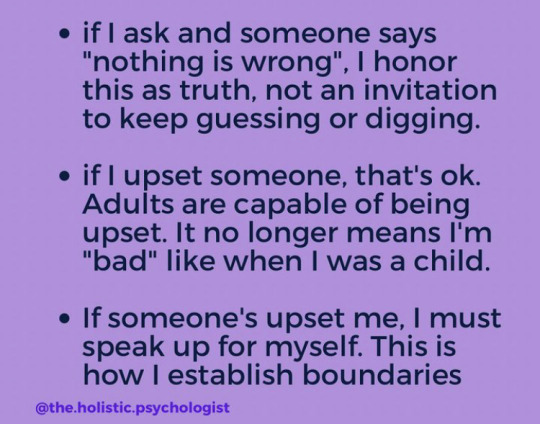
#mental health#insecure attachment#insecurity#dysfunctional family#childhood trauma#assertiveness#recovery#healing#healthy boundaries
1K notes
·
View notes
Text
how can this bitch (me) be independent to the point of loneliness and yet so helpless at the same time
#mental illness#emotional neglect#insecure attachment#disorganised attachment#avoidant attachment#attachment issues#penelope speaks#💗.txt
221 notes
·
View notes
Text
I think I've really started figuring out something about relationships and why mine seem to end so intensely. So this is just a little thought experiment, and, as always, I'm not an expert and I'm mostly writing this to talk to myself - take what resonates and leave the rest! So without further ado...
I think that these are some of the most basic ingredients a good relationship can have:
each partner having a baseline ACCEPTANCE of the other person and the ability to "let them do them" authentically
each partner being able to set BOUNDARIES that allow them to continue "doing them," as well as being able to tell the other "no" and stand up for themselves in order to keep those boundaries in place
each partner being COMFORTABLE with the concept that the relationship MAY NOT WORK OUT and truly being okay with stopping the relationship if it begins to go south
When these things start to get compromised, all hell breaks loose and you start the really vicious insecure attachment style cycles we've all come to know and love.
First of all, if someone starts to feel, for whatever reason, that this relationship "MUST WORK OUT," you are headed for disaster - this will create a scenario where at least one person in the relationship is more susceptible to letting go of their own boundaries if the other person asks. If there is any kind of question of the other partner not being able to accept them or their boundaries, the partner who feels things need to work out will simply let go of their boundaries for the sake of the relationship rather than stand up for themself or be able to walk away. Then you have a situation where boundaries are disintegrating and acceptance of the boundaryless partner is potentially starting to become conditional, so you've got the other two pillars of the safe relationship starting to fall.
Soon enough, you're in a very deep cycle. Putting aside your own boundaries for another person, no matter who they are, starts to breed resentment, and you start to feel unaccepting feelings toward the other person's behavior and probably feel that you're participating in an unequal power dynamic where they are making the rules of the relationship. Without your own boundaries, you likely start to impinge on your partner's - if you have to give up so much to be with them and earn their acceptance, they'd better be giving up the same! And then, the more that either of you give up, the more you probably start to subscribe to the sunk cost fallacy - you've changed so much for this person, so now you have to stay together even more, because this relationship would just be a total failure and violation otherwise.
FRIEND. Let me just say it right here from the start: if you stick to the three pillars above, you will probably be able to maintain a much healthier relationship with your partner and yourself!!! Because when you are not bending over backwards in ways that harm you, it's likely that you expect less of that from your partner as well. If you maintain the boundaries, it's probably easier to maintain your acceptance of each other, too. And if you keep your comfort with being alone, you're able to decide to leave in a respectable, peaceable way if the other relationship pillars start to fall in a way that makes you uncomfortable. I feel like these 3 pillars are the way to have a healthy, happy relationship with realistic expectations, that can still end really amicably if it needs to! But if you lose one the whole thing comes crashing down.
#mine#attachment issues#insecure attachment#anxious attachment#disorganized attachment#relationship anxiety#bpd#boundaries#perfectionism
79 notes
·
View notes
Text
Reminder to self: The goal is not to be free of insecurity or imperfection *before* building relationships. The goal is to learn how to own and work through insecurity *while* being vulnerable with the people you love.
#attachment issues#anxious attachment#avoidant attachment#attachment styles#disorganized attachment#insecurity#insecure attachment
129 notes
·
View notes
Text
I will not excuse abuse or disregard for my feelings/boundaries.
I will not enable my insecure attachment to a person who consistently exhibits this behavior.
I understand that maintaining insecure attachments is not the same as maintaining a relationship.
I will not settle for the veil of safety.
I want real safety.
I want real relationships.
#healing#trauma#neurodivergence#self love#queer#codependent no more#narcissistic abuse recovery#narcissistic trauma#narcissistic parents#narcissistic abuse#narcissistic abuse survivor#prose#codependency#codependency is an addiction#ptsd#c-ptsd#complex trauma#attachments#insecure attachment#secure attachment#no more enabling#love#relationships
72 notes
·
View notes
Text
One of my cPTSD triggers is other people being in a bad mood.
A traumatized piece of my brain believes that if anyone in my surroundings is grumpy, stressed, etc on any level, that I am unsafe.
I didn't fully recognize this until the last year or so. I just knew I was anxious but wouldn't realize what the trigger was. It's nice that I know what is happening now. But I still don't really know how to stop it or cope with it all that well.
I remind myself that my brain is just thinking I'm unsafe, when I'm actually safe. That my current home environment isn't the same as the one I grew up in. It helps a tiny bit.
But I mostly stay hypervigilent, over-analyzing how much talking is happening vs 'normal', the tone of voice used, any sighing, any mistakes that happen and how those are reacted to...because that part of my brain thinks that making mistakes when someone is in a negative mood means they'll attack me. It's not like feeling panicky, it's this lower level of anxiety that has a really uncomfortable buzz to it. It makes it hard to relax enough to do something like watch a show or do something artistic.
And while part of me feels over-activated, I somehow simultaneously feel somewhat shut down.
Grounding techniques feel kinda nice but don't really seem to change anything.
So, this is on my list of things to work on.
#cptsd#complex ptsd#attachment trauma#childhood neglect#insecure attachment#anxiety#hypervigilance#ptsd
34 notes
·
View notes
Text
I feel like TBoSaS fans can be put into these categories

Fans who idealize Coriolanus Snow:
- oh, Coryo is so handsome and smart, of course, he couldn’t be wrong!
- either think that Coryo was right about Sejanus deserving to die or say they know it was basically murder and that Coryo was a killer but don't care because Coryo is handsome and/or they like him #HaloEffect
- believes Coryo is more intelligent than everyone around him, he deserves the best #SnowLandsOnTop
- livin’ on TikTok edits
Fans disillusioned about Coriolanus Snow:
- believe that Coriolanus is a monster ever from the start of the book until the very end
- often don’t care about the background that Coryo grew up and developed in
- often read/portray Coryo as an incel, a dude completely entrapped in toxic masculinity, or a straight-up psychopath or a sociopath
- “OMG Lucy Gray run away from him!!1!”
Fans with an insecure attachment style and childhood trauma:
- understand the trauma and background that Coriolanus grew up in and that largely contributed to him becoming a monster in his early adulthood (Capitol is a morally rotten place)
- simultaneously don’t excuse his crimes - the fact that Coryo was largely shaped by an awful environment doesn’t excuse murder but it explains how he ended up in this place
- relate to Coryo’s mental health issues in many ways
- understand that Coryo was more of a human doing than human being, that his whole self-perception and self-esteem was based on the pressure to reclaim the honor for Snow's name as the last man in his family and on the lack of secure relationships for most of his time (his grandmother influenced him more than Tigris + outside of his household he was constantly pressured to pretend to be someone else)
———————
Of course, don’t treat this too seriously, just sharin’ my thoughts and perceptions
#suzanne collins#the ballad of songbirds and snakes#tbosas#coriolanus snow#coryo snow#the hunger games trilogy#thg trilogy#panem#capitol#the hunger games fandom#insecure attachment#insecure attachment style#trauma#am I again doing Coryo a psychoanalysis? perhaps
22 notes
·
View notes
Text
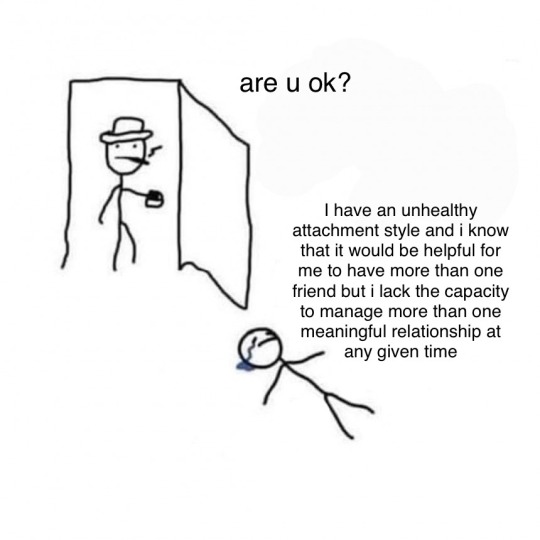
19 notes
·
View notes
Text
sorry im overly obsessive and clingy do u still think im cute
#anxious attachment#anxious preoccupied#insecure attachment#attachment trauma#attachment issues#mine#100
272 notes
·
View notes
Text
fearful avoidant attachment style is super confusing because I'm pushing away exactly what I want.. like wtf
#fearful avoidant#attachment styles#insecure attachment#from a fearful avoidant#real talk#mylife#couple#relationships#single
94 notes
·
View notes
Text
I'm constantly getting cut on the precipice of your cutthroat glare
I still desire it, like a teenager craves a pencil sharpener
Like my wandering soaked up heart still sits with you
The only area we connect is anger
Every 3-5 business days or months I'm here
Sitting on a metaphorical doorstep drooling over a memory of you
A memory that maybe I constructed
A distant phone rings, and when I pick it up it's your voice, cold with hatred
The mailbox shoots a million poloroids at me, each a snapshot of your stabbing eyes on Broadway st.
The last time I saw you I felt my blood like permafrost
90 degree heat does nothing to quench me
I am insatiable, putrid, disgusting to you
Your anger has become mine
There's a reason I tried so hard to memorialize you before you left
If one loving touch was enough to last a lifetime, I wouldn't fucking be here
So much of your love is shards
Each one with a glint of a charming grin, a memory of safety as you held me
Perhaps they're a mirror, like our suns and moons, reflecting me, reflecting you
Maybe that's why they call it disorganized attachment
Because I can't fucking pick them up
Everyone else on the planet is just fine
They aren't moving, they aren't seeing
I'm pushing so hard at the crust of the universe to go back in time
I never will
Instead I'm memorializing anger
Instead I'm forgetting you, except in some dreams where you love me
My lungs burn for you
And for the lack of air you once gave me
There's no cut, drug, or drink that would quite touch me like you do
Nor a 12 step program for firework kisses
Or rehab for losing hours in your company
Slate eyes, twin flame, open fire
You are everything and nothing to me
A well-intentioned flame cannot lick away a fire that burns brighter
The more I try, the more you are there
The more you are there, the more I yearn
The more I burn and cut and bruise and wail
Anger is consuming me, and so are you
-E 2022
#poetry#poem#slam poetry#slam poem#spoken word#breakup#heartbreak#love#anger#suggestion#intense#passion#love addiction#insecure attachment
65 notes
·
View notes
Text
Ageist be like I don't hate children I just hate people with personality disorders, insecure attachment styles and dissociative systems.
When all these things are caused by childhood trauma.
Bonus irony point if the person is a feminist or neurodivergent.
12 notes
·
View notes
Photo
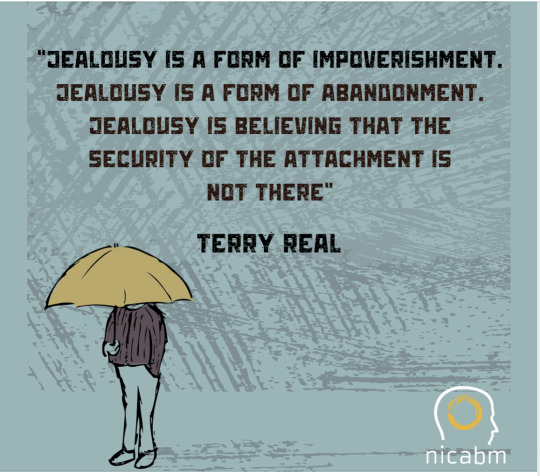
#trauma effects#jealousy#attachment issues#insecure attachment#abandonment wounds#fear of abandonment
26 notes
·
View notes
Text

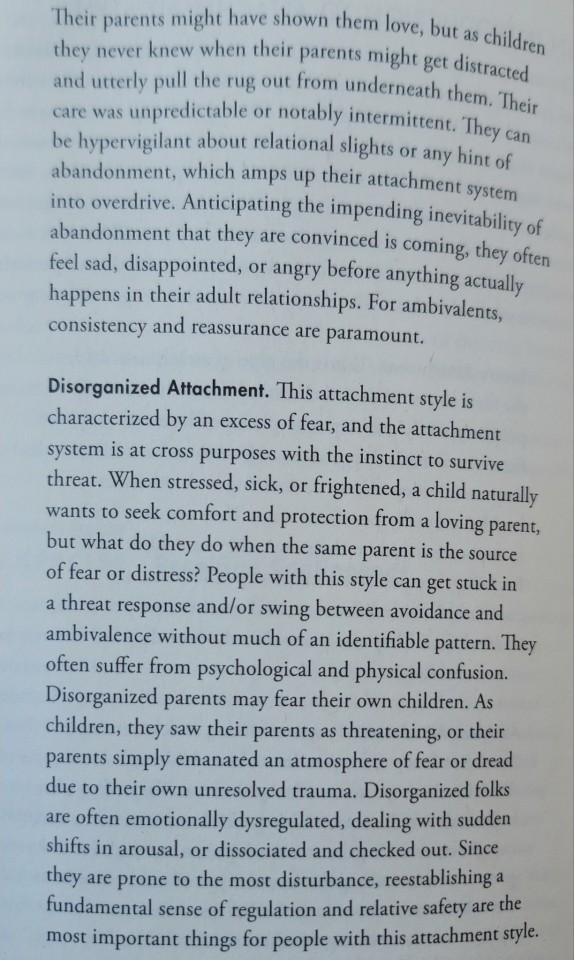
From The Power of Attachment by Diane Poole Heller
[Text ID:
AN INTRODUCTION TO ATTACHMENT STYLES
The human attachment system is an inherent, biological, and natural process that relates to everything we do in life, especially when it comes to our relationships with others. Although secure attachment is what we're after here, it's important to note that whatever attachment style we live with evolved to keep us safe. Even insecure attachment patterns are designed to help us survive dangerous situations, and none of these styles are set in stone. The next four chapters look at each of these four adaptations in depth and provide ways to work with them. Here's a quick overview to get us going:
Secure Attachment. This is the type of attachment in the ideal situation described earlier. Securely attached people typically grew up with plenty of love and support from consistently responsive caregivers, and as adults they are interdependent, connecting with others in healthy, mutually beneficial ways. 'They are okay both in connection and on their own; they can think with fexibility, can perceive a range of possibilities, are comfortable with differences, and resolve conficts without much drama. They can internalize the love they feel from others and forgive easily.
Avoidant Attachment. People with this attachment style have a tendency to keep intimacy at arm's length or to diminish the importance of relationships. They often were neglected: left alone too much as children, rejected by their caregivers, or their parents weren't present enough (or only present when teaching them some type of task). Avoidants have disconnected- put the brakes on-their attachment System, so reconnecting to others in safe and healthy ways is extremely important
Ambivalent Attachment. People with the ambivalence adaptation deal with a lot of anxiety about having their needs met or feeling secure in being loved or lovable. Their parents might have shown them love, but as children they never knew when their parents might get distracted and utterly pull the rug out from underneath them. Their care was unpredictable of notably intermittent. They be hypervigilant about relational slights or any hint of abandonment, which amps up their attachment system into overdrive. Anticipating the impending inevitability of abandonment that they are convinced is coming, they often feel sad, disappointed, or angry before anything actually happens in their adult relationships. For ambivalents, consistency and reassurance are paramount.
Disorganized Attachment. This attachment style is characterized by an excess of fear, and the attachment system is at cross purposes with the instinct to survive threat. When stressed, sick, or frightened, a child naturally wants to seek comfort and protection from a loving parent, but what do they do when the same Parent is the source of fear or distress? People with this style can get stuck in a threat response and/or swing between avoidance and ambivalence without much of an identifiable pattern. They often suffer from psychological and physical confusion. Disorganized parents may fear their own children. As children, they saw their parents as threatening, or their parents simply emanated an atmosphere of fear or dread due to their own unresolved trauma. Disorganized folks are often emotionally dysregulated, dealing with sudden shifts in arousal, or dissociated and checked out. Since they are prone to the most disturbance, reestablishing a fundamental sense of regulation and relative safety are the most important things for people with this attachment style.
End id]
#The Power of Attachment#attachement style stuff#secure attachment#insecure attachment#anxious attachment#avoidant attachment#ambivalent Attachment#disorganized attachment#Diane Poole Heller
50 notes
·
View notes
Text
Invalidating your own trauma
A "nugget" from a recent therapy session that I keep coming back to...
My therapist said that a good way to look at your own trauma is through the lens of someone who didn't experience it that way.
Because our childhood trauma is normal to us, as it's often all we knew as kids as we're often in cultural bubbles. So our friends, cousins, etc often have similar childhoods to our own, so it can feel like that's what almost the whole world is like. But it's not, of course.
They said that when someone had a mom that drank everyday, they often will feel like 'everyones' mom drank too often/too much. And they can point to things like how you can walk into retail stores and find baby onesies that say "I'm the reason mommy needs wine." to show that it is "normal" to drink all the time. So they might feel like having a mother with a drinking problem is something they shouldn't have trauma over. But to me, someone who had a mom who almost never drank, and who I have literally never seen drunk even once - it's SO understandable to me that having your mom rely on drinking as a coping method, or worse - be an outright drunk, could be scary and damaging. They are going to lack emotional presence, you may not feel like they are 'in control' in the ways they should be, you might be afraid of them, you might feel like you have to step up to take care of things when they're drinking. You are likely to think its normal/healthy to use alcohol do deal with big feelings rather than learning healthier methods. Of course that's traumatic!
And for me..."normal" is having a parent who doesn't ever connect with you on a deep emotional level, who regularly is frustrated with you for needing anything from them, it's feeling emotionally alone your whole childhood, not going to anyone as a child when bad things happened to you because you knew the support wasn't there. It's being desperate to be 'good' and a severe people pleaser yet still routinely getting yelled at and otherwise punished for making age-appropriate, human mistakes despite trying your best. It's having to shut down your feelings regularly as you weren't allowed to be angry, hurt or sad in most cases but especially cases that involved your parents' behavior, and being ignored or rejected on the few instances where you were so desperate as to ask for help. It's walking on eggshells to try to avoid angering the adults in your lives because if they got upset, you couldn't feel safe.
I have no idea how common it is. But there are people who grew up with parents who they could go to when they had a problem with a friend at school. Or when they were scared of the dark. Or when they were sexually abused. Or when they started their period for the first time. There are children who grow up being taught how to feel their feelings not shut them down or avoid them. Who don't think twice about taking up space, because they've never had routine experiences that taught them that they needed to be 'small' to be safe. And those people would see my idea of 'normal' childhood and go gosh, of course that is damaging! Maybe even 'I can't imagine having been a child and not feeling like I could turn to my parents when I was scared/hurt/upset! That's wild!" rather than be like me and think 'that's just how it is, I shouldn't be hurt by this.'
#childhood trauma#cptsd#my posts#therapy#childhood emotional abuse#childhood emotional neglect#developmental trauma#insecure attachment#attachment trauma
13 notes
·
View notes